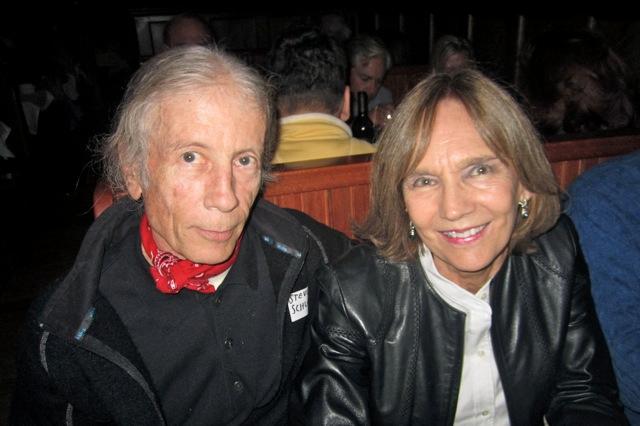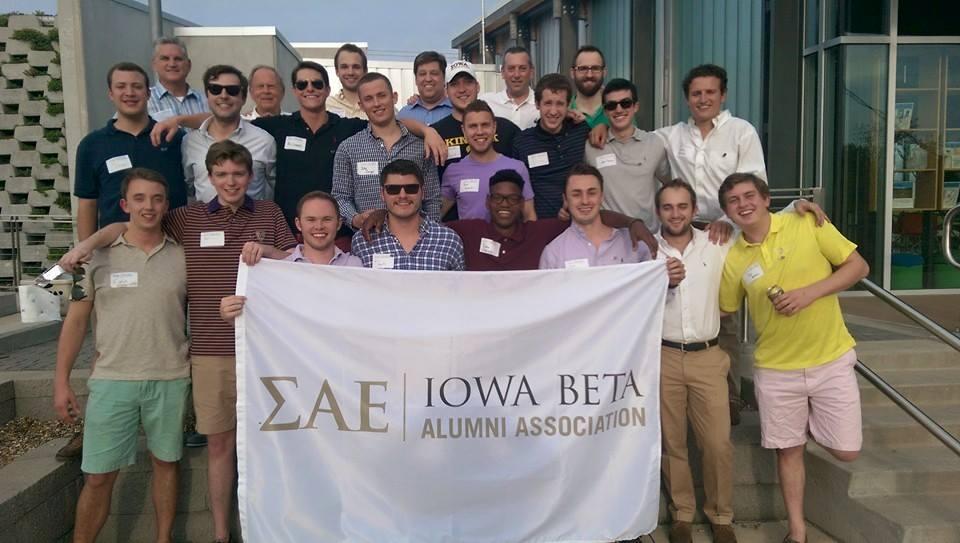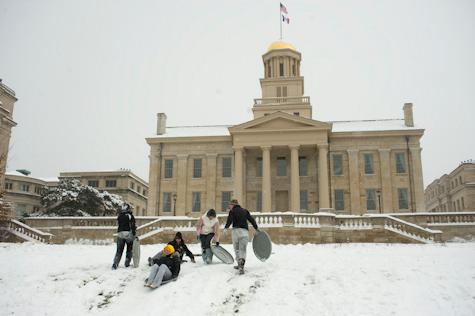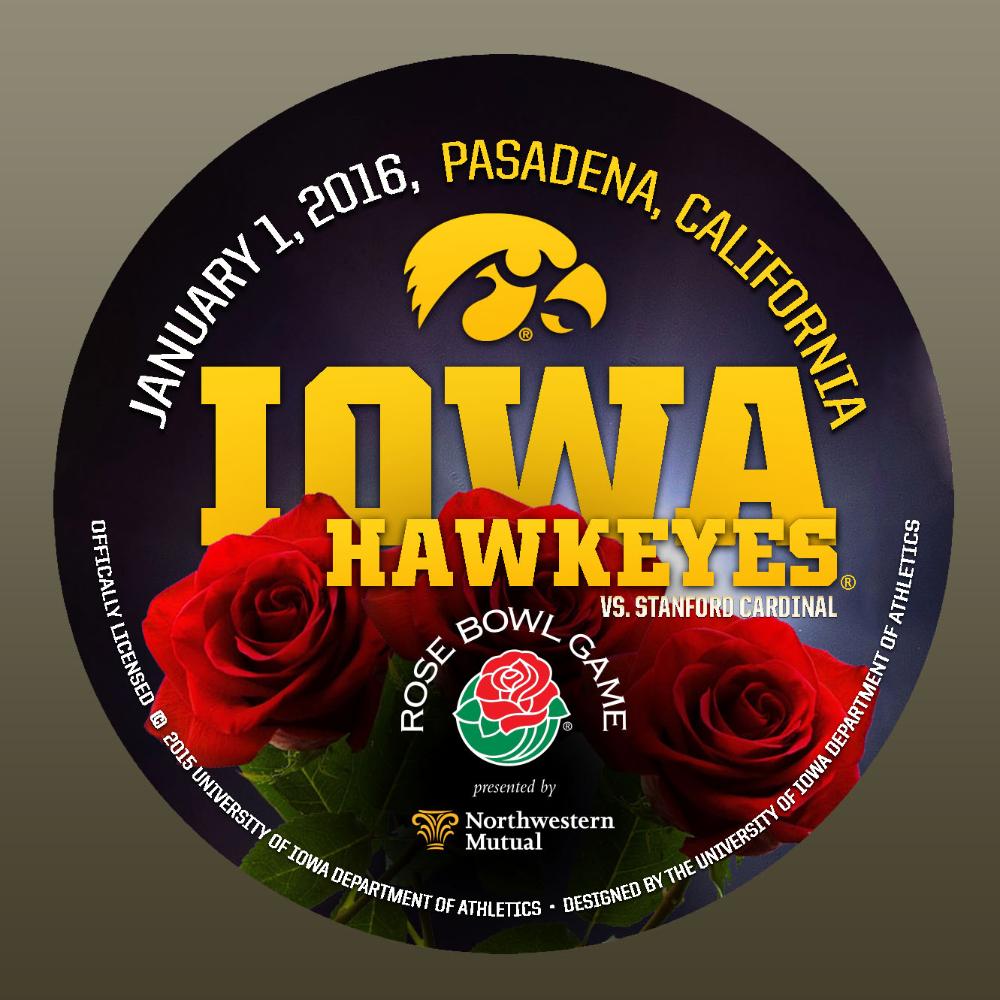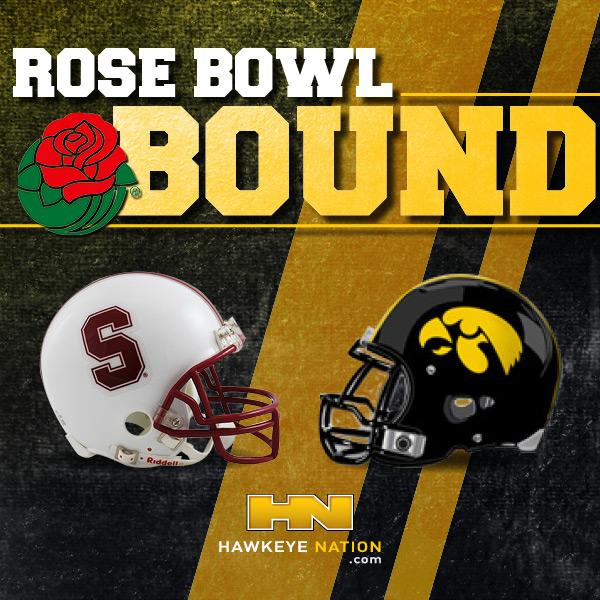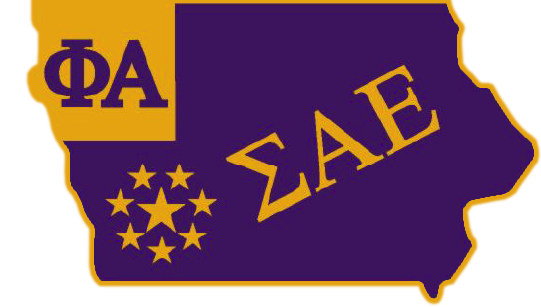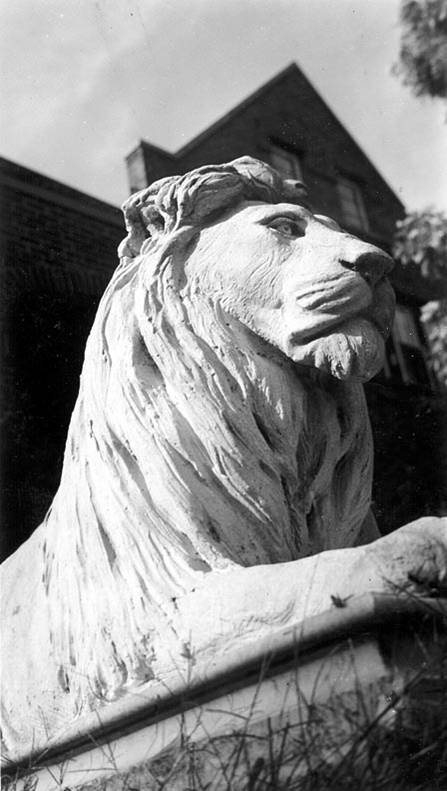In his own words, Steve Schultz reflects on his life and days in the SAE house in the 1960s
Steve Schultz (IABE '65), who resides in Waterloo, Iowa, is a very popular brother and we wanted to find out more about his days in Iowa Beta and what he’s been up to lately. He shared some of his insights along with memories that have given Iowa Beta its rich heritage. He spoke with Greg Miller, Director and Communications Chair of the Iowa Beta Alumni Association.
Q: Steve, how did you find your way to the Hawkeye campus?
I ended up in Iowa City because I didn't have the imagination to investigate different places. Iowa City was just down the road from Waterloo, and they had great football at that time, number 1 in the country, so that made the U of I attractive.
Q: Are you an Iowa native, born and raised?
Actually, no. I was born in New Orleans during World War II. Jack "Smiley" Swanson (IABE '66) was also born in New Orleans, and also at Baptist Hospital at about the same time.

If you remember the opening scene from the movie Patton, George C. Scott, who plays General Patton, ends his soliloquy telling his troops that many of them would not return alive from Europe but at least you won't have to tell your children that you spent the war shoveling shit in Louisiana.
That's what my pop did, metaphorically, anyway. I had a sister who lived there and she and my mother learned to cook Cajun and Creole style food. Later, growing up in Iowa, I thought everyone ate red beans and rice, gumbo, and crawfish etouffee every day. I never had it so good, but of course, I didn't know it at the time.

I also lived in Little Rock, AR, for a while and then moved on to Waterloo. My father's family emigrated from the Ukraine, and they were teamsters, which in those days, meant that you drove teams of horses, not Kenworths. When I met Bob Robertson (IABE '64) from Cedar Rapids, we were surprised to find that Bob's family emigrated from a nearby town in the Ukraine and we were actually distant relatives! Talk about coincidences....
Q: Tell me about growing up in Waterloo and your high school years.
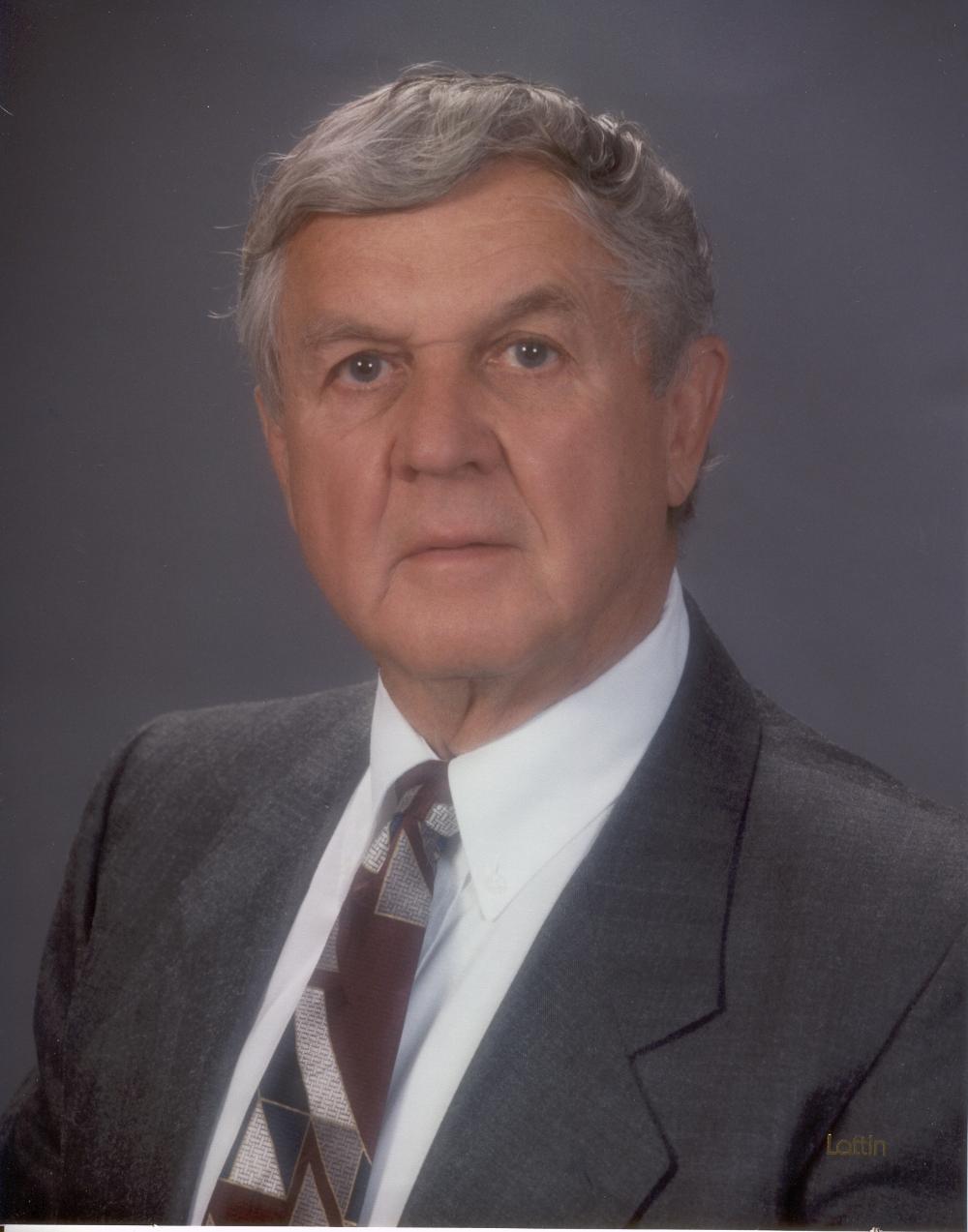
High school? I was rather typical; average at sports, average at scholastic activities and I got into the average amount of trouble, but I was in with some really good company.
The wrestling program was just ahead of Dan Gable's four years there, and the wrestling coach, Bob Siddens, is a national treasure, just like Dan. So just participating under him was an honor in itself.
I think my interests were all over the board, and my best friend, Bill Leighty, and I seemed to feed off each other's curiosity. Bill went to Stanford, earning a two degrees in electrical engineering and when he came home on holidays, he often came to Iowa City to see other Waterloo friends like Steve Mashek (IABE '65),Brad Caldwell (IABE '65),John Palmer, and many other others.
Bill became a scientist and specialist in renewable alternative energies, and the rest of us remained rather ordinary. The only thing unusual about my life at that time was that I had a serious interest in motorsports. I'd always found a way to have a motorcycle, and that lead to a determination to go racing when I could afford it. Unfortunately, I could never afford auto racing, so eventually, I went to motorcycles and raced them for a number of years; but that's a whole other story.
Q: What did you do when you arrived at Iowa and what did you study?
My education at Iowa was at first, unremarkable. I was fortunate to have fellow classmate Bob Dehl (IABE ’65) from Paoli, PA tell me about taking a class in fiction writing in the Writer's Workshop and it sounded to me like something I'd like to try. It ended up being a life-changing experience for me, because it saved my grade-point average.
They handed out A grades for writing a poem, for god's sake. And you'd be guaranteed a B for the whole semester if you could put a spin on a story your grandfather told you. I played that card as well as I could, and managed to graduate.
I was actually absorbing a great education in those classes held in the old "Union Temporaries" metal Quonset huts down by the river near the Student Union. It was a wonderful mix of rather untraditional students from many different backgrounds, and I became comfortable there. I ended up getting a master’s degree under the direction of a fine writer and friend named Robley Wilson, who was editor of the best fiction magazine in the U.S., The North American Review.
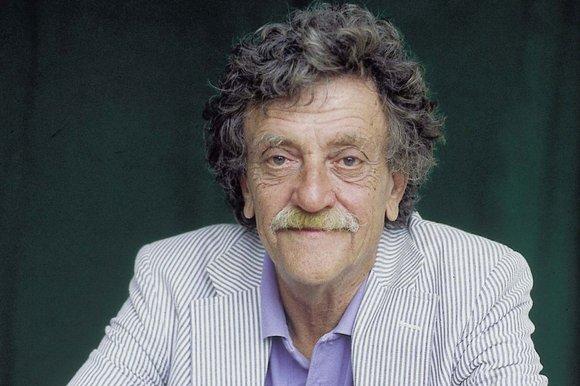
With Robley's help, I managed to get published several times, and even got some photographs published, including some covers. I took my first paycheck for fiction, and bought a case of Hofbrauhaus Dark beer, thinking I was really something. Then I started reading Saint-Exupery, and realized how hopeless a life as a writer would be for me. However, I had stumbled into the most influential experience of my life. I learned that to just sit and think; and try to make sense of things, was a sufficient goal in life.
Send your donations to the University of Iowa Writer's Workshop, please. It's still the best one in the world and the best program the school has to offer.
Q. How did Sigma Alpha Epsilon get on your radar screen?
I connected with SAE at a summer rush outing at Clear Lake. It was a nice time and the fellows seemed to be mature, but fun loving. Who could resist?
I went through fraternity rush in the fall, and pledged immediately. I think they kept Flip Klinger (IABE ’64) locked in a closet, which was a good idea. He was in there with another guy from Cedar Rapids. I lived in the house for three years, but I had to get out my senior year, like a lot of other seniors did at that time.
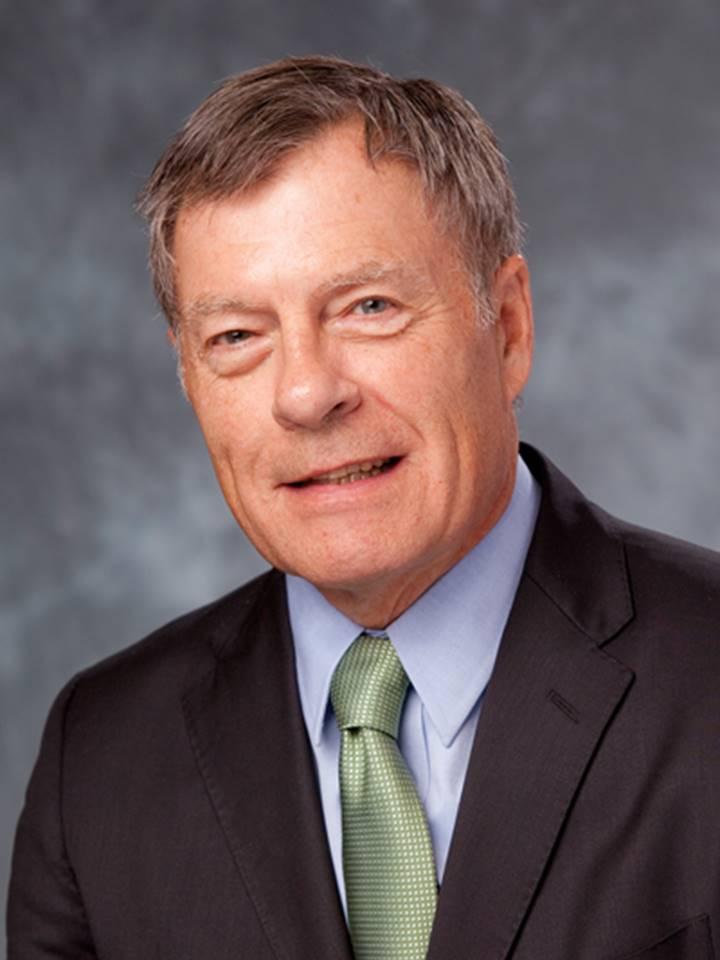
SAE was a good transition between childhood and adult life. I made probably the most solid friendships of my life there, and clearly, some of the most influential. There were about 45 fellows living there from all kinds of backgrounds.
Those days seemed to be so intense on the one hand, regarding academics, and so carefree on the other. The fear of grade-point problems was so substantial that it was a modifying cap on everyone's head except for Steve Shank (IABE ’65) who was so smart that he didn't even have to think. He just reacted and got a 4.0. Tom Smallwood (IABE ’64) had to think, but he nailed the academic problems immediately.
Shank became CEO of Tonka Corporation and subsequently founded Capella University, a premier for-profit institution of higher learning which delivers most of its educational courseware content online.
Smallwood became a leading attorney in Milwaukee, defending hospitals against medical malpractice claims and is extremely active in the community with important civic causes.
If your readers don't know these names they should google them. But be prepared, people like this don't come around often.
Q. Can you recall some of the guys in your pledge class?
I will probably leave out someone from my pledge class, but in addition to Brad, Steve, and John, Waterloo was always well represented at 303 N. Riverside Dr.
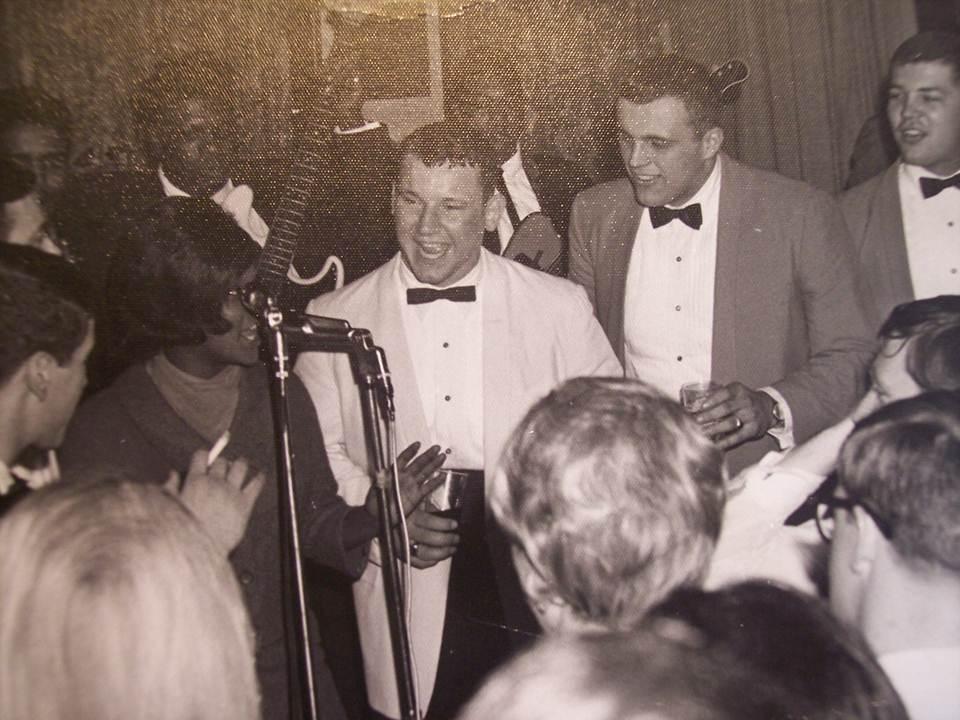
Perhaps some will remember the names Gordon Trapp (IABE ’60), the Nordyke brothers, Jim (IABE ’56) and Tom (IABE ‘ 61), Bernie Webber (IABE ’60), Leroy Dirks (IABE ’61), Jack Rule (IABE ’61), John Rooff (IABE ’67), Paul Stone (IABE ’56), Steve Showers (IABE ’58), Dave Hennesey (IABE ’61), and many more.
Mashek really came to love SAE and he was responsible for so many of the reunions, which we enjoyed. When we lost him we all lost some drive. He really can't be replaced.
Q. Did you hold an office or leadership position in the SAE house?
I never held any office in the house and I didn't want to. I spent a lot of time in the boiler room because I liked mechanical things and the boiler always needed attention. Jim “Cowboy” Grove (IABE '68) taught me rudimentary boiler-love and I felt keeping the heat on and preventing the boiler from exploding was a sufficient contribution. Nobody else knew anything about it. I think it was a Kewanee, wrapped in asbestos, leaking from two pipe unions and held together with foundry refractory patch.
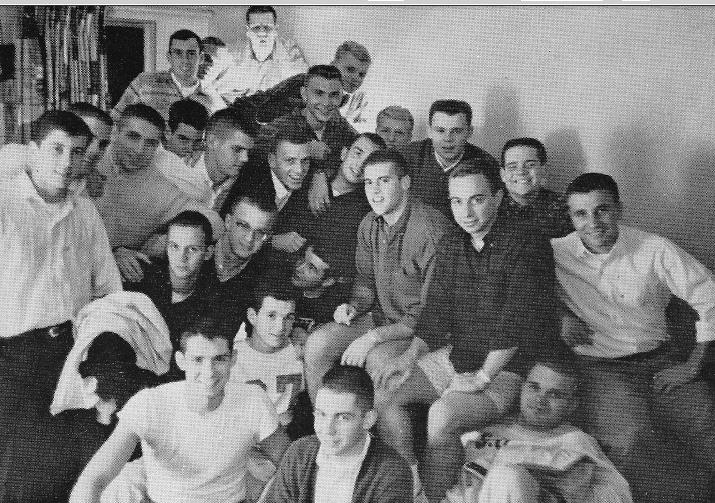
The only leadership position I took in the house was pledge trainer one year. I thought perhaps I could be influential but trying to influence teenagers out from under their parents grasp for the first time was like herding cats.
The allure of demon rum was too hard a master and I found it to be a great adversary. Perhaps Rooff would be a good one to ask if I had any net benefit to those fellows. John was president of his pledge class as well, so maybe that was in a way, a result of his experiences with SAE. He later was elected mayor of Waterloo. He was as handsome a lad as any young man on the planet. I saw him recently in the Waterloo post office, and we always greet with "the grip." What a great thing, really…I'm not joking.
Q. Who were some other brothers that influenced you?
I made some really wonderful pals at the Iowa Beta chapter house. I'd say that the two most influential persons in my SAE experience were Denny Porter (IABE ’62) from Ames, and Jim "Cowboy" Grove from Mount Carroll, IL. Denny was eminent archon at the time and I believe I learned how to apply critical thought processes, from him. We have become life-long friends, and he's still one of the best communicators and commentators I've ever come across. His only fault, in my opinion, is that he has no faults. Nobody should be that complete.
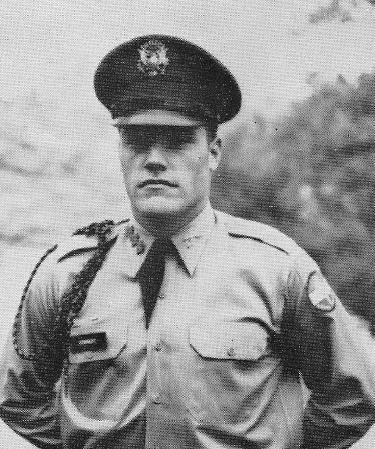
And Cowboy? Well, he was and is our Will Rogers-style humorist. I love his good, small-town wisdom that has more than a touch of wit. From him, I learned subtlety and that one didn't have to be loud or excessive in order to be effective with language. Cowboy drew more respect from fewer words, than any person I'd met before.
To sit in the same room with Denny, Cowboy, Howard Kennedy (IABE ’62) and Jay Irvin (IABE ’63) was like sitting in a test range for machine gun bullets. A pledge just didn't want to say something foolish in the company of those fellows! Probably (His Honor) Judge J.C. Irvin had the driest sense of humor on the planet and his being in charge of other person's lives still give me pause. But Cowboy's metaphors were a great counterpoint.
Once, during a chapter meeting, something really silly came up for a vote, and the responses were shouted out. "I move that we…," said one. "I'll second it," came the next. From the back of the room came the unmistakable voice of Cowboy: "I'll eat it!" and of course, the place went up for grabs. Cowboy Grove.
Q. So what was the plan after graduation?
After graduation, I had to put my tail between my legs and return to Waterloo to earn a living. I worked for 40-plus years in a junk yard, doing everything from cutting up railroad cars with an acetylene torch, to signing checks with lots of zeros. It was not easy, but it had its moments. I learned more of life's lessons than I realized at the time, and there is a book of short stories from that time, but it's not finished…maybe some day.
During those years, I couldn't resist the pull of speed. One year at Daytona, I became friends with the German national champion we formed a good working relationship, because when I had time, I'd go to Europe to help him in Grand Prix. He'd become the top rider at various times for Yamaha, Suzuki, and Aprilia and as a result, we had a fair amount of overseas travel. It was an excellent experience for our kids, and they learned early on to be comfortable in many foreign circumstances.
Q. You mentioned kids, tell me about your family.
I got married my senior year to an absent-minded young woman named Judy Sorensen, from Iowa City, by way of Superior or Menomenee or Spooner, or somewhere up there. I say absent minded, because she called the SAE house asking for a ride to the Michigan-Iowa football game and someone told her I was driving there. I had a date with a girl from Michigan whom I'd met over spring break in Ft. Lauderdale, and she had a date with the Michigan football captain, with the unlikely name of Evashevski, who was related to some guy associated with Iowa football.
Anyway, she must have absent-mindedly forgotten something, as I did, because we ended up taking a hike on our dates and getting married to each other. Poor thing. Really, I'm not joking.
We have two delightful daughters, Kristin who lives in Kansas City and Andrea who was wise enough to figure out how to live in Iowa City. They have both gotten to know some of the SAE brothers, and they have an inkling of what the caliber of people it was whom I was dealing with. They are so impressed!
Q. What are some of your fondest memories from your time on campus?
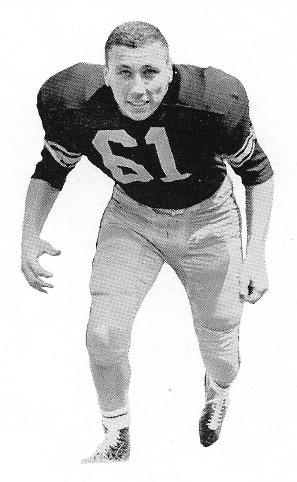
Fondest memories? Wow, that is very difficult, because it was more about the friendships rather than the activities. However, I'd say that the initiation night for my pledge class was one of the best. During the lineup, which took place in the dark, the awful Ed "Whitey" Kolker (later known as "Hanging Judge Whitey") (IABE ’62) walked up to pledge and All-American linebacker Mike Reilly (IABE ’64) to ask him a question. Kolker stood all of 5 feet 5 and I'm probably being kind by an inch. Reilly went on to be a linebacker for the Chicago Bears.
Kolker asked, "Mike, why do they call you "Hammer"?
“Because I hammer guys like you into the ground," Reilly fired back.
The whole chapter, actives and pledges alike went up in a howl. We all loved the moment. Obviously, it was unforgettable. I still have contact with Whitey, who also hails from Waterloo, and we love each other to death.
Q. It sounds like you keep up with your brothers, how so?
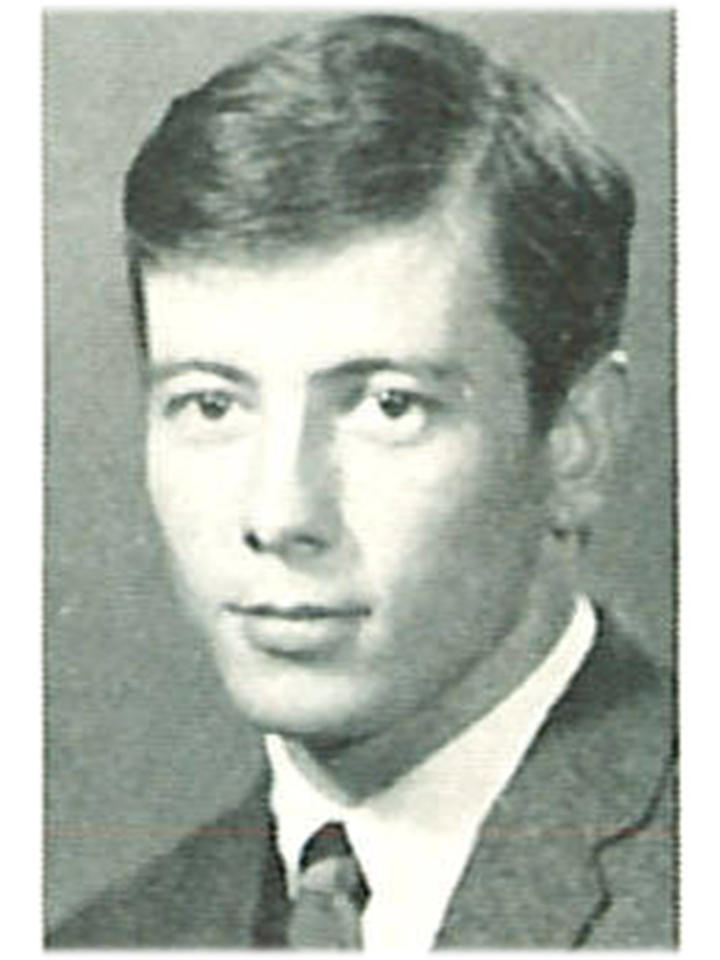
I actually have quite a bit of contact with other SAE alums and always have. We tend to use mostly use email and I'll bet there isn't a week that goes by without me exchanging something with some brothers. I can say for certain that there's a good network for all who care to be in touch, and if someone is still above ground, he can hardly hide.
I think the good memories are worth freshening, even if it's through second-hand information. The use of the computer as a tool is simply beyond description except for the cruel reality of contemporary photographs. But at age 72 would I really like to look 21?
Q. It sounds like SAE has been a life-long theme in your life, is that right?
The benefit of SAE is obvious to me. Firstly, I never would have made grades without the assistance of SAE upper classmen, who helped me with freshman course planning. I would have taken all the wrong courses, selected the most-feared instructors and flunked out. However, with guidance, I chose "snap" courses and managed a grade-point average sufficient for activation. I'd never have succeeded in that, without input from experienced upper-classmen.
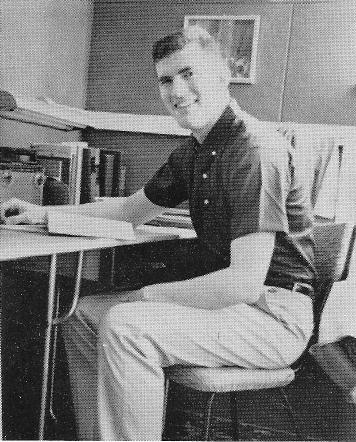
The second most important benefit was the role-model factor. From Rick High (IABE ’64), I learned how to never behave in public. Kennedy taught me that I should never attempt to tell a joke or to be an entertainer, because the bar was already set too high.
From Bob "Wally" Finch (IABE '65), I learned that being a keen observer was equally as important as being the instigator of the action. Bob and his son Rob became luminaries in photo-journalism and everyone should Google son Rob Finch!
Jim "Red" Wilson (IABE '65) taught me that it was humanly possible, with only a Pepsi for sustenance to crawl into the sack and wake up 48 hours later, with sleep interrupted only by the time to open and drink the soda. I worship that feat!
Steve Hart could pick up a Budweiser, suck the beer out of the can, and slam it back down to the table in 3.5 seconds. I've never seen it done better. How's that for a lifetime goal?
I learned so much more, but these are just a few highlights that remain fresh in my mind.
2015 Year in Review: Another outstanding year for Iowa Beta and its alumni volunteers
As the year ends, it is customary to reflect back on major successes and milestones achieved during the past 12 months. We lift our glasses high and toast to some of the highlights of 2015:
- The Iowa Beta Alumni Association became the largest SAE alumni organization in the realm, was recognized as the Fraternity's Outstanding Chapter Alumni Association, and was also named runner-up for its Outstanding Communications. These important awards build on the recognition we received last year for Outstanding Website, Outstanding Communications and runners-up for Outstanding Chapter Alumni Association.
- An Alumni Advisory Board was established to restart the Iowa Beta chapter and guide its members in accordance with SAE policies and procedures. The Alumni Advisory Board is a standing committee of the Iowa Beta Alumni Association. The Iowa Beta undergraduate chapter will return to campus in the fall of 2016 as a "Phoenix Colony." It will reoccupy the chapter house in August 2017. An "interest group" of undergraduates will form the nucleus of the colony and will be established in the coming months. Stay tuned for further details.
- The Iowa Beta Riverside, Corp. ("the house corporation") refinanced the mortgage on the chapter house to lock in low interest rates, established a line of credit for operating emergencies and made significant repairs and improvements to the property to ensure the safety of its occupants. Additionally, the lease was extended for one additional year to TKE (the current renters) which ensures financial continuity and gives the Iowa Beta colony a membership goal to achieve in order to fill the house in 2017.
- Formal and informal social events have been taking place throughout the country and throughout the year to reunite alumni and show support for the Iowa Beta chapter.
- The annual BBQ dinner for graduating seniors who become alumni members in good standing upon their graduation took place in Iowa City.
- The website was refreshed with more functionality to better serve our members and our membership database was updated to ensure that we have the best contact information to keep alumni apprised of important Iowa Beta developments.
- The Iowa Beta Alumni Association was called upon to assist in the colony investigation for Illinois State University and was appointed to serve on the SAE national Alumni Engagement Committee.
- An Annual Fund campaign was established for those who are in a financial position to support the alumni association and would like to help it fulfill its mission.
- The Iowa Beta Alumni Association was highlighted in a recent edition of the Fraternity's magazine, The Record, as a model of how alumni organizations should handle adversity. To read the magazine, please click here: https://drive.google.com/file/d/0B4z2hqvcwWdGeDZyRk5fMTNCcWM/view?usp=sharing
As alumni volunteers, we are grateful for the strong support and encouragement we have been receiving from Iowa Beta alumni. Thank you for your help as we work to reestablish the chapter and try to keep you proud of Iowa Beta!
QUIZ ANSWERS: Iowa Trivia; how did you do?
So how did you do? Here are the answers to the 10 quiz questions.
1. In 1855, the total enrollment at the UI was 124 students, 41 women and 83 men. In the fall of 2014, the University of Iowa had a student population of 31,387. The UI, founded in 1847, is one of three regent universities in the state. Of the 14 Big 10 schools, where does it rank in student population today?
a. 12th
2. The UI became the first U.S. public university to admit men and women on an equal basis when it opened in 1855. It was the first to give a law degree to a woman, Mary B. Hickey Wilkinson (1873), and the first to give a law degree to an African American, G. Alexander Clark (1879). Iowa may have produced the first African American to play in university varsity sports, Frank Kinney Holbrook in 1895. What sport did he play?
d. Football
3. The UI Hospitals and Clinics recorded its 5,000th organ transplant in March. What year did the institution begin organ transplants?
b. 1969
4. When Michael Jordan was winning NBA championships for the Chicago Bulls, he had a former Hawkeye player, B.J. Armstrong, win three of those titles with him. The University of Iowa retired Armstrong's jersey in 1992. Name the other Hawkeye player who had his jersey retired in the 1990s?
a. Chris Street (1993)
5. The Iowa Writers’ Workshop is world-renowned, with its alumni have won numerous literary awards. How many Pulitzer Prizes has it produced?
c. 18
6. At any given time, how many employees, students, and volunteers are working at the UI Hospitals and Clinics?
a. 9,000
7. George Gallup, inventor of the Gallup poll, was a student at the UI, an editor of The Daily Iowan and a member of Sigma Alpha Epsilon. What year did he receive his undergraduate degree?
d. 1923
8. What do the Burch the Bear and Rex the Dog have in common?
b. There were the University of Iowa's first mascots
9. Iowa City has it's share of ridiculous laws. Which one of these was actually true?
a. A man with a mustache is not allowed to kiss a woman in public.
10. Of course Greek fraternities and sororities are on campus. Approximately how many student organizations exist?
d. 500
Did You Know?
December is the twelfth and last month of the year in the Gregorian calendar and is one of seven months that has 31 days.
The Gregorian calendar, instituted by Pope Gregory XIII in 1582, is the calendar system most widely used in Western societies today.It replaced and refined the Julian calendar which preceded it.
The name “December” is derived from the Latin word decem, meaning ten. In the old Roman calendar, December was the 10th and final month of the year.
The Julian calendar, instituted by Julius Caesar in 46 BC, replaced the Roman calendar and was the first calendar system to have 12 months. It retained December as the last month and kept its name. The Julian calendar was ultimately replaced by the Gregorian calendar.
Many holidays and festivals are celebrated in December. Some are on a fixed date and some are variable according to different calendar systems.
For 2015, the most common holidays celebrated in the U.S. during December, in order of their date, include:
Hanukkah. The Jewish "Festival of Lights" is an eight day holiday period aligned with the Hebrew Calendar which is celebrated in 2015 from December 6 at sunset to December 14 at nightfall.
The story of Hanukkah commemorates the rededication of the second Holy Temple of Jerusalem. It took place during the revolt against the ruling Seleucid Empire in 165 BC after the temple was ransacked. Jewish celebrations were forbidden, prompting the revolt.
The temple was left with only enough oil to light the candles for one night, but the oil miraculously lasted eight days.
Bodhi Day. For those practicing Buddhism, the eighth of December is celebrated as the date that the historical Buddha, Siddhartha Gautauma, experienced enlightenment. The term Buddha means "enlightened one."
While not much is known about Buddha's actual life, and varying sects disagree on specific details, Buddha had forsaken the practices of extreme self-denial and resolved to meditate under a peepal tree (or bodhi tree) until he found the root of suffering and how to liberate oneself from it. Several sects believe that Buddha was tempted by demon gods during his meditation but overcame them.
His teachings form the basis of the Buddhist religion.
Christmas Day. December 25 is celebrated by the vast majority of Christians around the world as the birthday of Jesus. It is also a federal holiday in the United States.
Jesus is the central figure of Christianity and is believed to be the Messiah awaited for in the Old Testament of the Bible.
Along with God the Father and God the Holy Spirit, Jesus, as God the Son, is believed by Christians to be part of the Holy Trinity.
Christians believe Jesus was conceived by the Holy Spirit and born of the Virgin Mary. The Virgin Mary and her spouse Joseph traveled to Bethlehem to take part in a census as ordered by Caesar, where Jesus was born in a manger fulfilling prophesy.
Although nobody knows the exact date of the birth of Jesus, tradition places it on December 25.
Christmas Day has become a religious, secular, and cultural celebration world wide.
Maulana Karenga created Kwanzaa in 1965 as the first specifically African-American holiday. According to Karenga, the name Kwanzaa derives from the Swahili phrase matunda ya kwanza, meaning "first fruits of the harvest".
The choice of Swahili, an East African language, reflects its status as a symbol of Pan-Africanism, especially in the 1960s, although most of the Atlantic slave trade that brought African people to America originated in West Africa.[
Kwanzaa is a celebration that has its roots in the black nationalist movement of the 1960s, and was established as a means to help African Americans reconnect with their African cultural and historical heritage by uniting in meditation and study of African traditions and Nguzo Saba, the "seven principles of African Heritage" which Karenga said "is a communitarian African philosophy".
During the early years of Kwanzaa, Karenga said that it was meant to be an "oppositional alternative" to Christmas. However, as Kwanzaa gained mainstream adherents, Karenga altered his position so that practicing Christians would not be alienated, then stating in the 1997 Kwanzaa: A Celebration of Family, Community, and Culture, "Kwanzaa was not created to give people an alternative to their own religion or religious holiday."
Many African Americans who celebrate Kwanzaa do so in addition to observing Christmas.
New Year's Eve. December 31 is the final day of the Gregorian calendar year and is a night of celebration. It celebrates the conclusion of the current year and the arrival of the new year about to begin.
New Year's Eve celebrations vary, but are typically celebrated by evening social gatherings where people are dressed up in fine clothes, eat delicious foods, consume alcoholic beverages, listen to music and dance and/or watch fireworks.
At midnight, it is customary to kiss your partner, toast the New Year with vintage champagne and join in the singing of "Auld Lang Syne".
The celebrations usually last well past midnight and into January 1, which is New Year's Day.
Note: The Muslim holiday Eid al-Adha, which honors the willingness of the biblical Abraham to sacrifice his son as an act of submission to God, does not align with the Gregorian calendar. In some years it falls in December and in other years it falls in other months. For 2015, it was celebrated in September.
Hawkeyes celebrating season at Rose Bowl
It has been 25 years since Iowa last played in the Rose Bowl. The 12-1 Hawkeyes will be back in Pasadena on Jan. 1 to take on 11-2 Stanford.
Iowa fans are justifiably excited for the occasion, even if their team narrowly missed out on the College Football Playoff. This weekend, the Hawkeyes dropped a very cool “See You in Pasadena” hype video for the game, featuring highlights from this season and homage to the program’s past Rose Bowl squads.
Iowa has appeared in 28 bowl games, including 26 bowl games since 1982. In bowl games, Iowa has a 14–13–1 record.
It’s Iowa’s first trip to the Rose Bowl since the end of the 1990 season – a 46-34 loss to Washington – but it’s been a regular on the bowl circuit, went to two Orange Bowls, and held its own throughout the years in various post-season trips. But Iowa has had plenty of doubters who said they could not be this successful.
The same reasons America doubted the Hawkeyes on the way to a 12-0 record – okay talent, no flash, mediocre schedule – are why the team needs this win. 2015 has been a wildly successful year no matter what happens in Pasadena, but a loss would reinforce the stereotype that Iowa, when it’s strong, is a nice, solid program, but not among the elite.
It won the 2010 Orange against a very good Georgia Tech team, but not an elite one, and was crushed by a burgeoning USC juggernaut squad in the 2003 Orange.
Over the last three bowl appearances, the Hawkeyes lost to good Oklahoma and LSU teams, and last season was outclassed by an ultra-athletic Tennessee squad. But this is the chance. This is the opportunity to do something no Iowa team has ever done and win 13 games. This is the shot at winning the school’s first Rose Bowl since beating Cal in 1959.
Time is running out...
Your generosity helps us fulfill our mission but time is running out to make a tax deductible donation this year.
The Iowa Beta Alumni Association is recognized by the IRS as a section 501(c)(3) nonprofit organization for educational purposes.
We are committed to providing financial support, educational programming, mentoring and career networking to help college students who are members of Sigma Alpha Epsilon unleash their full potential, get involved with the community, graduate from the University of Iowa, and pursue meaningful professions.
Your gift of any size is tax deductible to the fullest extent of the law.
Additionally, some employers match donated funds which can double your support!
Please consider making a donation to support our programs and initiatives prior to December 31 in order to benefit this tax year.
Thank you and Phi Alpha!
We're Global!
Iowa Beta is global!
The Iowa Beta Alumni Association has been sending monthly e-newsletters to alumni for whom we have valid email addresses for nearly three years.
In that time, brothers from all over the world have been keeping up to date on Iowa Beta developments.
In addition to the United States, Iowa Beta brothers have been reading the newsletters in the following countries:
- Japan
- Germany
- Spain
- Canada
- Mexico
- United Kingdom
- Portugal
- Israel
- Switzerland
- Dominican Republic
- Philippines
- Thailand
- Italy
- Jamaica
- Russia
- Hong Kong
- France
- Denmark
- Greece
Thank you for your support!
Have you joined?
Joining the Iowa Beta Alumni Association is the primary way that most alumni can support the fraternity.
Joining is fast, easy and free!
We want all of our brothers to be able to participate in the Iowa Beta Alumni Association regardless of financial circumstance, so there is no fee of any kind to join.
Any tax deductible donation you choose to make to support our programs and initiatives is completely optional.
The mission of the Iowa Beta Alumni Association is to promote and support the University of Iowa chapter of Sigma Alpha Epsilon. Support is provided in many ways, including:
- Scholarship awards to those SAE undergrads who exemplify the ideals of the True Gentleman, as measured by academics, chapter involvement, and community service & philanthropy.
- Event sponsorship to enhance ties between alumni and undergraduates resulting in ongoing education through networking, mentoring, and career guidance.
- Undergraduate challenges based on community service and academic goals.
- Ongoing education and information through various communication methods and channels.
Recognized as "outstanding" in various categories for the past two years, the Iowa Beta Alumni Association is the now largest and fastest growing SAE organization in the realm.
More than just bragging rights, a strong alumni base means that the Iowa Beta chapter returns to campus in fall 2016 with the full confidence and support of Sigma Alpha Epsilon's Fraternity Service Center and the University of Iowa.
Won't you take this opportunity now to support Iowa Beta as we prepare for the Chapter's return to campus?
We simply need you to update or confirm your contact information so that we can keep you abreast of Iowa Beta developments.
Please click the "Join Today!" button below.
Thank you!
Disclaimer: All images used by the Iowa Beta Alumni Association (the "Alumni Association") are either owned by the Alumni Association, authorized for use by the Alumni Association or are used under Fair Use for education, information and news purposes by a 501(c)(3) nonprofit organization. If you are the copyright holder of a certain image and wish us to remove that image, please contact us at the email address below.
